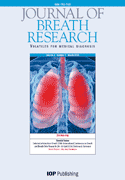导读:据日本齿科大学的科研小组介绍:硫化氢(H2S)——一种无色有臭鸡蛋气味的有毒气体——是口臭的关键诱因,但它们似乎还能帮助干细胞分化成肝细胞。此前,中国的一个科研团队曾证实H2S可以增强大鼠骨髓间质干细胞的存活率。

日本研究人员发现,一种在口臭中起关键作用的化合物能够加速人们将牙髓干细胞发展成对人类有益疗法的发展。
据日本齿科大学的科研小组介绍:硫化氢(H2S)——一种无色有臭鸡蛋气味的有毒气体——是口臭的关键诱因,但它们似乎还能帮助干细胞分化成肝细胞。此前,中国的一个科研团队曾证实H2S可以增强大鼠骨髓间质干细胞的存活率。
日本的研究人员从患者牙髓(位于牙齿内部的牙髓腔内,由结缔组织和细胞组成)收集干细胞,再将这些细胞平均分成2组,一组放入含有H2S的容器内培养,另一组则放入不含H2S的容器内培养。
研究人员分别在3天、6天和9天后对它们进行了分析,看它们是否变成了肝细胞,并检验了其有效性——包括储存糖原(当机体需要能量时转化成葡萄糖)和收集尿素(蛋白质代谢产生的副产物,在肝脏产生后融入血液,最后通过肾脏随尿液排出)。
这项研究发表在Journal of Breath Research期刊上,并由物理研究所公布。研究人员说他们的研究结果显示,H2S可以促使数量更多、纯度更高的肝细胞产生。第一作者Ken Yaegaki说:“高纯度意味着分化为其他组织或者不分化的‘错误细胞’变少了……这些事实表明,能接受这种肝细胞移植的病人,患恶性肿瘤或者癌症的概率近乎于零。”
“目前为止,还没有人提出能产生如此大量肝细胞的方案,这为人类肝细胞移植提供一个新的来源。与传统方法或者胎牛血清产细胞法相比,我们的方法更加高产,最重要的是,安全。”
布里斯托尔大学细胞和分子医学权威Anthony Hollander说:“这是一个有趣的新方向,但要看它是否能转化成为有效的疗法,还有很长的路要走。”
“检测肝细胞的终极指标在于它是否能够代谢掉特定毒素,而这就需要对一些酶的功能进行试验。”他说。

Hydrogen sulfide increases hepatic differentiation in tooth-pulp stem cells
Nikolay Ishkitiev, Bogdan Calenic, Izumi Aoyama, Hisataka Ii, Ken Yaegaki and Toshio Imai
The toxicity of hydrogen sulfide (H2S), an oral malodorous compound, is well reported. We have recently established an experimental model of hepatic differentiation from human tooth-pulp stem cells (HTPC) using serum-free medium. The objective of the present study is to determine the effect of H2S on hepatic differentiation. The CD117 positive cell fraction was obtained from deciduous HTPC using magnetic cell sorting. After 3–4 passages, cells were grown in Dulbecco's modified Eagle's medium supplemented with insulin-transferrin-selenium-x (ITS-x), embryotrophic factor (ETF) and hepatocyte growth factor (HGF) for hepatic commitment (five days). For hepatic differentiation the cells were cultured in Iscove's modified Dulbecco's medium supplemented with ITS-x, ETF, oncostatin, HGF and dexamethasone for 15 days in air containing 5% CO2, with or without H2S at 0.05 ng ml−1. Cells were assayed for the expression of hepatic markers α-fetoprotein, albumin or carbamoyl phosphate synthetase, and urea concentrations and glycogen synthesis were also determined. The panel of hepatic markers was expressed more in the test groups exposed to H2S than in the control groups. Urea and glycogen production were also increased, especially glycogen which was approximately five times greater compared to the control (p < 0.01). We concluded that H2S at physiological concentrations increased the ability of HTPC to undergo hepatogenic differentiation.








